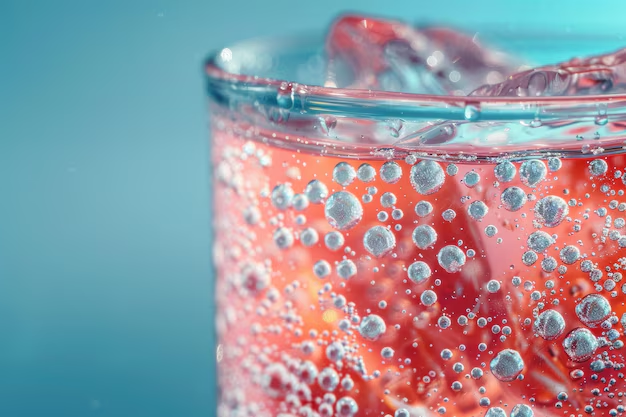-
July, 26,2025
Understanding the Role of Bloom Strength in Soft Gelatin Capsules
-
July, 25,2025
Bloom Strength and Its Impact on Hard Gelatin Capsules
-
July, 21,2025
How Gelatin Is Revolutionizing Pet Food: A Healthier Option for Dogs
-
June, 22,2025
Collagen as a Trusted Ingredient: Meeting Global Demand with Reliable Supply
Navigating Gelatin Grades: What Manufacturers Need to Know
Understanding the different grades of gelatin is crucial for manufacturers across various industries, from food and pharmaceuticals to industrial applications. Gelatin grades, determined by factors such as source, purity, and gel strength, directly influence its suitability for specific uses. This guide provides a comprehensive overview of gelatin grades, their classifications, and how manufacturers can choose the right grade for their needs.
What Are Gelatin Grades?
Definition and Classification
Gelatin grade refers to the classification standard of gelatin according to its source, purity, gel strength (usually expressed as Bloom value) and its application field. This grade can help determine the suitability of gelatin for specific applications, such as food, medicine, cosmetics or industrial use. Different grades usually reflect the physical and chemical properties of gelatin, such as gel strength, transparency, viscosity, etc., which in turn affect its use effect in specific products.
The grade of gelatin is mainly classified according to its source, purity, gel strength (usually expressed as Bloom value) and application field. Here are some common ways to classify gelatin:
Classification by source:
·Bone gelatin: extracted from animal bones, usually has a higher gel strength and is suitable for food and pharmaceutical fields.
·Skin gelatin: extracted from animal skin and widely used in food, medicine and cosmetic industries.
·Fish gelatin: extracted from fish skin or scales, suitable for applications that do not use mammalian products, such as halal food.
Classification by Bloom value:
·Low Bloom value (50-150 Bloom): usually used in soft foods such as soft candies and cakes.
·Medium Bloom value (150-220 Bloom): suitable for harder foods such as jelly and candy.
·High Bloom value (220-300 Bloom): used for products that require high gel strength, such as hard capsules, gel tablets, etc.
Classification by use:
·Food grade gelatin: used in food processing such as candy, jelly, yogurt, etc.
·Pharmaceutical grade gelatin: used for pharmaceutical capsules, drug coatings, etc.
·Industrial grade gelatin: used in non-food industries such as photographic film, coatings, and paper.
Classification by purity:
·High purity gelatin: used for applications requiring higher purity, such as medicine and biotechnology.
·Ordinary purity gelatin: suitable for general food processing and industrial applications.
The grade of gelatin depends on the specific application requirements. For example, food production usually requires food grade gelatin, while the pharmaceutical industry requires gelatin with higher purity and specific gel strength.

Factors Influencing Gelatin Grades
1.Source of raw material
The source of gelatin (such as cattle bones, pig skin, fish skin) affects its chemical composition, gel strength and purity, and thus the grade of gelatin.
2.Extraction process
Different extraction and processing methods (acid, alkaline or enzyme) affect the molecular structure and physical properties of gelatin.
3.Gel strength (Bloom value)
This is a measure of the gel strength of gelatin, usually between 50 and 300 Bloom. Higher Bloom values indicate stronger gel strength and are suitable for products that require harder or more elastic products.
4.Purity
Lower ash content generally means higher purity, especially in pharmaceutical and high-end food applications, purity is an important factor in determining gelatin grade.
5.Protein content
The protein content in gelatin and its structural integrity also affect its quality and grade.
6.Color and transparency
High-grade gelatin is usually lighter and more transparent, suitable for products that need to maintain visual and sensory properties, such as food and cosmetics. The higher the transparency of gelatin, the higher the grade, especially in applications that require a transparent appearance, such as capsules or jellies.
7.Viscosity
The viscosity of gelatin in solution affects how it performs in various applications. Different grades of gelatin will exhibit different viscosities at the same concentration.

8.Moisture content
Excessive moisture content will reduce the quality of gelatin, so gelatin with lower moisture content is usually higher grade.
Microbiological indicators:
9.Microbiological contamination
Gelatin with low microbial content is often used in applications that require high safety standards, such as the pharmaceutical and food industries.
These factors together determine the final grade of gelatin, affecting its suitability for use in different fields and products.
Different Gelatin Grades and Their Applications
Pharmaceutical Grade Gelatin
Pharmaceutical grade gelatin requires extremely high purity and safety, and meets strict pharmacopoeia standards, such as the United States Pharmacopoeia (USP) or the European Pharmacopoeia (EP). At the same time, good manufacturing practices (GMP) must be followed during the production process to avoid contamination and ensure product quality consistency. The main applications of pharmaceutical grade gelatin:
·Pharmaceutical capsules: Pharmaceutical grade gelatin is widely used in the manufacture of pharmaceutical capsules because its excellent solubility and stability can ensure the effective release of drugs.
·Pharmaceutical gelatin: It is used to make various pharmaceutical gels, such as topical ointments and dressings, to improve the stability and bioavailability of drugs.
·Supplements: As the base material for capsules or tablets, pharmaceutical grade gelatin is often used in dietary supplements to provide necessary nutritional support.
Funingpu offers pharmaceutical-grade gelatin that meets the rigorous standards of the United States Pharmacopoeia (USP) and European Pharmacopoeia (EP). Their gelatin ensures excellent solubility, stability, and consistent performance, making it an ideal choice for capsules and supplements.
Food Grade Gelatin
Food-grade gelatin must comply with food safety standards to ensure that it is safe to use in food and does not contain harmful substances. The production process must comply with food production specifications to avoid any risk of affecting food safety. Main applications of food-grade gelatin:
·Food processing: Widely used in various food processing, including candy, jelly, pudding and ice cream, to provide gelling and thickening effects.
·Beverage industry: Used as a clarifier in beverages to help remove impurities and improve the appearance of the product.
·Baked products: Used as a thickener and stabilizer in some baked products to improve the texture and taste of the product.
Funingpu’s food-grade gelatin is widely used by manufacturers in products like candy, yogurt, and ice cream. Funingpu’s gelatin provides superior gelling, thickening, and stabilizing effects, ensuring safety and quality in line with global food safety standards.

Industrial Grade Gelatin
Industrial-grade gelatin is mainly used in industrial production and is required to meet specific industrial standards rather than food or drug standards. Compared with pharmaceutical and food-grade gelatin, its purity requirements are relatively low, but basic product performance must still be guaranteed. Main applications are
·Papermaking industry: Used for coating and surface treatment of paper to improve the strength and gloss of paper.
·Photographic industry: In traditional photography, it is used to make the photosensitive layer of film and photographic paper.
Custom and Specialty Grade Gelatin
Custom-grade gelatin is tailored to the specific needs of customers to meet the performance requirements of specific applications. Special-grade gelatin is designed and produced for specific industries or applications (such as medical devices, special food products). Main applications:
·Medical devices: Making specific components in medical devices, such as degradable medical implants and biomaterials.
·High-end food: Used in high-end catering and food products to provide special texture and flavor.
·Technical applications: Used in the technology industry to manufacture high-performance materials and products, such as bio-printing and material science applications.
These different grades of gelatin meet the special needs of their respective fields, and through strict quality control and customized production, they ensure the performance and safety of the products in their respective applications.
How to Choose the Right Gelatin Grade for Your Business?
Assessing Your Needs
First, determine the application requirements. Based on the different gelatin grades and their applications above, determine the gelatin requirements for the application area. At the same time, consider the functional requirements of gelatin, such as:
1.Gel strength: Different grades of gelatin have different gel strengths. The appropriate grade should be selected according to the product requirements. Pharmaceutical grade and food grade gelatin usually provide high-quality gel effects.
2.Solubility and stability: Select the solubility and stability requirements of gelatin according to the product's handling and storage conditions. For example, food grade gelatin needs to remain stable during food processing.

Supplier Evaluation
Choose a reputable supplier who provides gelatin that meets the standards and provides the necessary technical support and after-sales service. Ensure that the supplier can provide the required gelatin stably and can meet orders when demand increases. Funingpu offers high-quality food and pharmaceutical-grade gelatin, ensuring consistency, safety, and adherence to global standards.
Testing and Certification
Conduct trials and verifications. Before large-scale production, conduct small-scale trials to verify the performance and adaptability of gelatin. Ensure that it meets the expected results and quality standards. Test the performance of gelatin in actual applications and evaluate its effects in products, such as gel strength, stability, etc. Collect feedback during the production process and adjust the gelatin selection according to actual application conditions.
Global Standards and Regulations
Selecting the right gelatin grade involves multiple considerations, including application needs, regulatory requirements, and actual performance. By comprehensively evaluating these factors, companies can select the gelatin grade that best suits their product needs, thereby ensuring product quality, compliance, and economy. For the highest-quality gelatin solutions, partner with Funingpu, a trusted supplier to manufacturers worldwide.
Final Thoughts
Selecting the appropriate gelatin grade requires careful consideration of application requirements, supplier reliability, and adherence to global standards. By understanding the nuances of gelatin grading—whether for pharmaceutical, food, industrial, or specialty uses—manufacturers can ensure product quality, regulatory compliance, and operational efficiency. This knowledge not only enhances the performance of end products but also strengthens a manufacturer's position in a competitive market.
Phone: +86-577-88105990
Mobile: +86-138 5886 1938
Official Website: www.fnp-gelatin.com
Email: sales@funingpu.com
Address: No. 1-10 Wenpu Road, Yacheng Town, Xiapu County, Ningde City, Fujian Province




